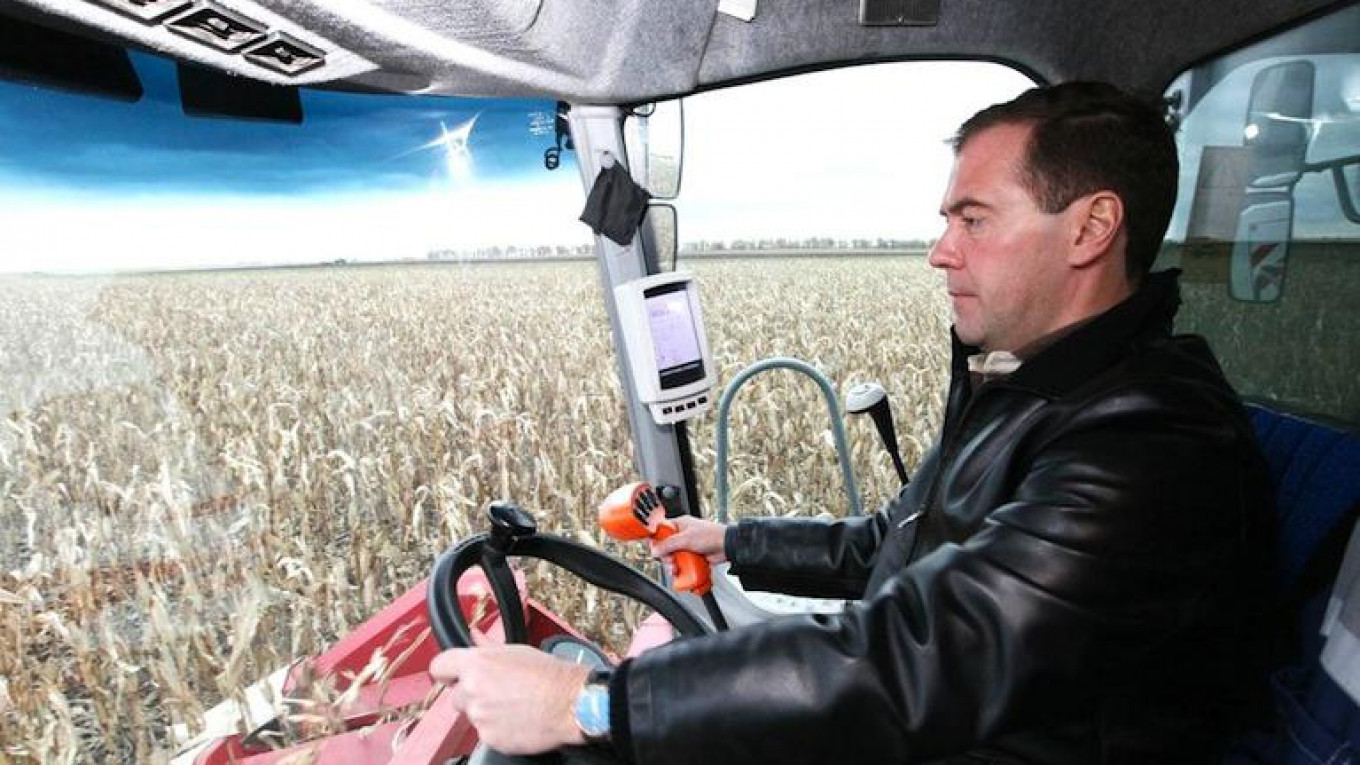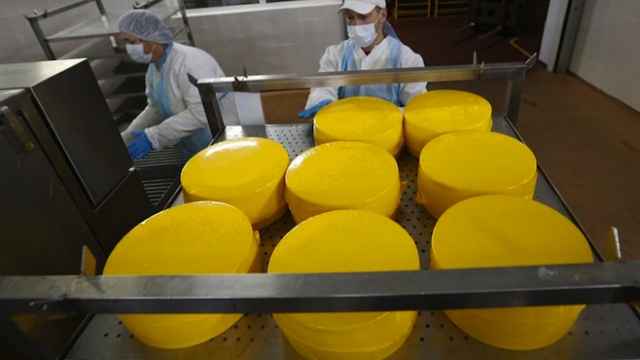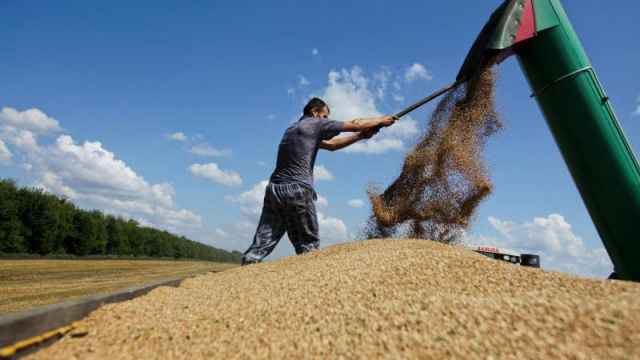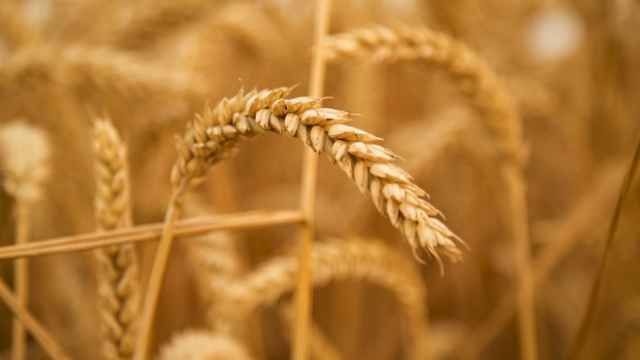A mild winter and a warm, wet summer mean Russia looks set to see its largest wheat harvest ever and retain its crown as the world’s top wheat exporter.
Russia’s performance this year “shattered” its record, the U.S. Agricultural Department said in an Aug. 12 report. According to U.S. estimates, the Russian wheat harvest will likely come in at 72 million tons.
Good weather, a weaker ruble and financial investors lured by the opportunity of big returns have boosted crop-growing in Russia, which enjoys the world’s fourth largest acreage of arable land. Exports have bounced back from a low point in 2010. Then, a drought triggered a Russian export ban, which in turn fueled bread riots in Egypt and the uprisings of the so-called Arab Spring.
The total grain harvest in Russia this year is predicted to reach about 115 million tons, according to figures by the Moscow-based SovEcon agriculture consultancy. Of this, 41 million tons are expected to be exported.
The favorable weather conditions and the record crop yield have not gone unnoticed by Russian officials, including President Vladimir Putin, who have made photo-op visits to farms in the throes of the harvest.
The large crop underlines an agricultural recovery Russia has undergone since the fall of communism. Mismanagement meant that the Soviet Union became an importer of grain in the 1970s and, famously, was forced to buy from the United States. Soviet dependence on imports lasted about 30 years until the collapse of Russia’s meat and dairy industries in the 1990s destroyed domestic demand for feed grain.
Tsarist Russia was the world’s top wheat exporter and modern Russia has finally regained that crown. Last year, Russia pushed the United States off the top spot to become the biggest global wheat exporter, with 25.5 million tons shipped abroad.
Russia looks set to continue its dominance. Traditional wheat-exporting rivals in Europe, particularly France, have suffered from poor weather this year, while U.S. wheat is becoming less competitive on global markets. Russia is expected to export more wheat in 2016 than all European Union countries combined.
Other countries in the region, particularly Kazakhstan and Ukraine, have also enjoyed record harvests. Much of the area’s wheat is exported to the Middle East.
The Russian agricultural boom, in addition to a Kremlin push for food self-sufficiency, has made the sector one of the only profitable and expanding parts of Russia’s struggling economy.
Ploughing Profit
“Demand for land in Russia has jumped sharply in the last 1 1/2 years,” says SovEcon’s Andrei Sizov, adding that investment in agriculture is down.
Some estimate that Russia has more than 40 million hectares of unused land — an area about the size of Iraq — land that could be suitable for arable farming.
The most fertile areas are in the country’s center and south, as well as Siberia. Russia’s winter wheat crop, which is planted the previous fall, is grown in central and southern regions.
The spring wheat crop, much of which has yet to be harvested, is grown around the Volga, in the Urals and southern Siberia. Russian farmland has become one of the country’s most attractive investments in recent years, popular among both the country’s tycoons and large financial holdings.
Relatively low prices drive demand. Sizov estimates that land prices in the central Black Earth region, one of the country’s best crop-growing areas, are between $600 and $700 per hectare. This compares to about $5,000 a hectare for similar quality land in the EU states of Bulgaria or Romania.
The rush for land appears to have exacerbated social tensions in some agricultural regions. On Aug. 21, about 200 farmers from the rich southern Krasnodar region, angered by alleged illegal land seizures, launched a tractor protest convoy that planned to drive to Moscow and raise concerns with the Kremlin.
Most participants were reportedly detained by riot police on Aug. 23 outside the city of Rostov-on-Don, having completed less than a quarter of the planned 1,400-kilometer journey.
A Message from The Moscow Times:
Dear readers,
We are facing unprecedented challenges. Russia's Prosecutor General's Office has designated The Moscow Times as an "undesirable" organization, criminalizing our work and putting our staff at risk of prosecution. This follows our earlier unjust labeling as a "foreign agent."
These actions are direct attempts to silence independent journalism in Russia. The authorities claim our work "discredits the decisions of the Russian leadership." We see things differently: we strive to provide accurate, unbiased reporting on Russia.
We, the journalists of The Moscow Times, refuse to be silenced. But to continue our work, we need your help.
Your support, no matter how small, makes a world of difference. If you can, please support us monthly starting from just $2. It's quick to set up, and every contribution makes a significant impact.
By supporting The Moscow Times, you're defending open, independent journalism in the face of repression. Thank you for standing with us.
Remind me later.







